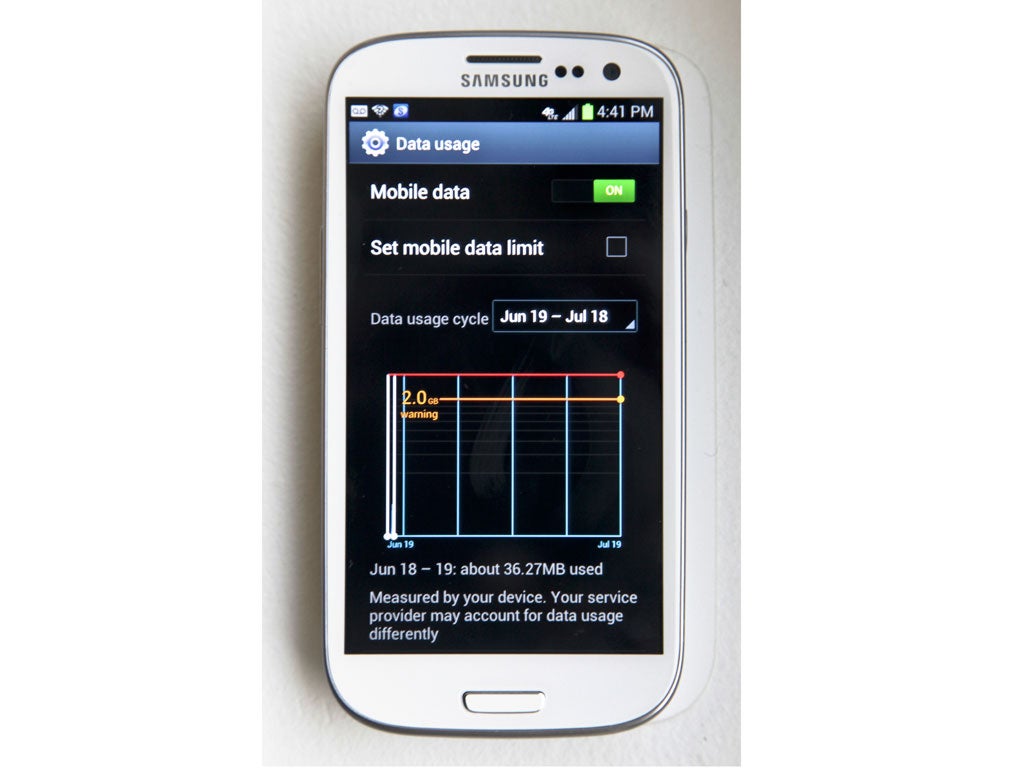Patent wars continue with Galaxy's US ban
Insiders condemn situation as 'ridiculous', says Mark Prigg

Your support helps us to tell the story
From reproductive rights to climate change to Big Tech, The Independent is on the ground when the story is developing. Whether it's investigating the financials of Elon Musk's pro-Trump PAC or producing our latest documentary, 'The A Word', which shines a light on the American women fighting for reproductive rights, we know how important it is to parse out the facts from the messaging.
At such a critical moment in US history, we need reporters on the ground. Your donation allows us to keep sending journalists to speak to both sides of the story.
The Independent is trusted by Americans across the entire political spectrum. And unlike many other quality news outlets, we choose not to lock Americans out of our reporting and analysis with paywalls. We believe quality journalism should be available to everyone, paid for by those who can afford it.
Your support makes all the difference.Last week Apple won an injunction against Samsung Electronics selling its Galaxy Tab 10.1 tablet in the United States, giving the iPhone maker a significant win in the global smartphone and tablet patent wars.
This is the latest in a seemingly never-ending battle of claims and counterclaims that caused the iPhone to be pulled from German shelves for a short time.
The problem revolves around highly technical, and often broad, patents granted around everything from using your finger on a screen to the way a 3G mobile network works.It has led to a situation condemned as absurd even by those at the heart of it, involving billion-dollar disputes, products being pulled from shelves, legal rows and court hearings.
"It's become a ridiculous situation," said Matt Barrie chief executive of freelancer.com, the world's largest online outsourcing marketplace. "Patents were designed to protect the small inventor, but it has been twisted and turned into a racket by big companies to stifle the small guys."
Buying up patents is big business, and the major players compete bitterly for the most lucrative ones. AOL, facing a slump in sales, agreed in April to sell and license 800 patents to Microsoft in a $1.1bn (£700m) patent sale. But even that pales in comparison to bankrupt telecoms company Nortel, which last year put its 6,000 patents up for auction as part of a liquidation. The portfolio was eventually sold to Apple and a consortium of other tech firms including Microsoft and Ericsson for $4.5bn, which outbid a $3bn offer from Google, whose recent $13bn purchase of Motorola is believed to have been largely for its portfolio of patents.
Mr Barrie says the big losers in the patent wars are consumers, small businesses and inventors – the very people the system was designed to protect. "A patent is only as good as your ability to defend it, so for a small firm it is virtually impossible," he said. "The only people winning here are the lawyers, and those costs get passed on to consumers."
Apple has been at the heart of the international patent war since 2010, and last week's injunction against Samsung comes less than a week after Apple suffered a serious setback when a federal judge in Chicago dismissed its patent claims against Google's Motorola Mobility unit. Judge Richard Posner ruled that an injunction barring the sale of Motorola smartphones would harm consumers.
The patent war is also delaying, and in some cases stopping altogether, new products from emerging.
Many in Silicon Valley, the heart of the world's electronics industry, claim that firms are now more concerned with patents than creating new products.
Join our commenting forum
Join thought-provoking conversations, follow other Independent readers and see their replies
Comments